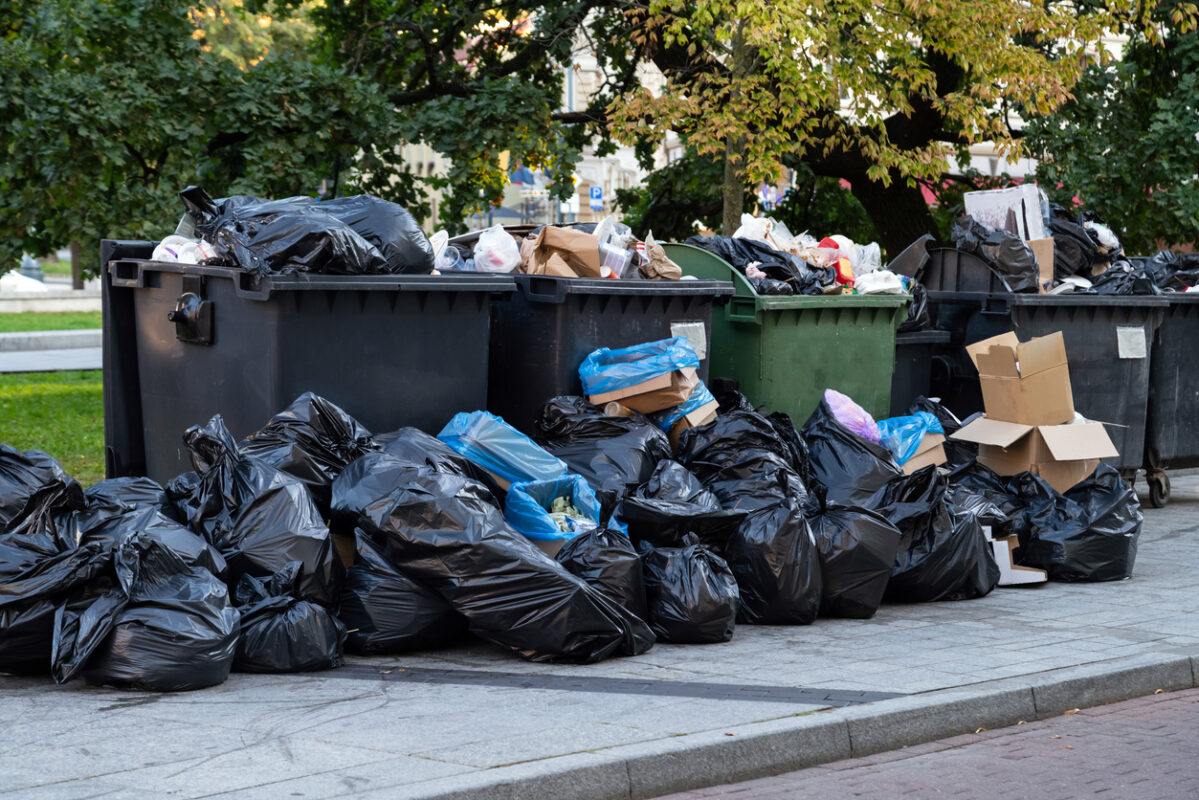When a prospective resident visits your property, there is little doubt that first impressions matter. They’re not just evaluating floor plans and amenities—they’re also taking into account just how well your property is maintained. Overflowing trash bins, scattered debris, or unsightly dumpster areas send a powerful (and costly) message. Simply put, this property isn’t well managed.
For multifamily property managers, waste management is often seen as a back-of-house task. However, in reality, it’s a front-line reflection of your community’s professionalism. A clean, well-maintained environment supports higher occupancy, better resident satisfaction, and improved property value. When trash becomes visible—or even worse, smelly—it doesn’t just affect curb appeal; it affects your reputation and bottom line.
The Hidden Costs of Overflowing Trash
Overflowing trash is as expensive as it is unappealing.
Here’s how poor waste management impacts your operations:
- Reduced Leasing Appeal: Prospects notice messy common areas, and cleanliness ranks as one of the top factors influencing leasing decisions.
- Lower Resident Retention: Residents who perceive property neglect are less likely to renew their leases—and resident churn is contagious.
- Higher Maintenance Costs: Staff spend time cleaning up overflow or scheduling extra hauls—time that could be spent on preventive maintenance or service requests.
- Pest and Odor Issues: Excess trash attracts pests and creates sanitation risks, leading to higher pest control and cleaning costs.
- Negative Online Reviews: A few complaints about dirty dumpster areas can quickly harm your reputation and deter future residents from even checking out your community.
Every one of these issues compounds over time, chipping away at property performance and profitability.
Why Trash Overflow Happens
Overflowing bins can happen anywhere; however, understanding the root cause helps prevent this issue from occurring in the first place.
Some typical issues could include:
- Irregular or Unplanned Pickups: Standard waste pickup schedules often fail to match resident density or volume.
- Not Enough Bin Capacity: As occupancy grows, existing bins may no longer meet demand.
- Improper Bulk Disposal: Oversized items like furniture or mattresses block access and cause overflow.
- Lack of Resident Awareness: Without clear communication, residents may leave trash in non-designated areas.
Once overflow begins, it tends to spread like a virus. This leads to more trash left outside bins, more maintenance calls, and greater frustration.
How to Prevent Overflow and Safeguard Your Property’s Image
1. Match Service to Volume
Analyze your waste generation patterns to determine if your current pickup frequency meets actual demand. Properties with high turnover, student housing, or family units often need more frequent service or additional capacity.
2. Use Valet Trash to Control Flow
Valet trash service provides consistent, scheduled collection directly from residents’ doors—reducing pressure on centralized bins and ensuring waste is handled daily. The result is cleaner common areas and less overflow around dumpsters.
3. Manage Bulk Waste Proactively
Schedule regular bulk waste removal to inform residents of the schedule and locations for disposing of large items. Clear signage and reminders help prevent blockages that cause trash containers to overflow.
4. Communicate Expectations Clearly
Alert residents through newsletters, signage, and move-in packets. Setting clear expectations for trash and recycling keeps everyone accountable and reduces contamination.
5. Improve Waste Area Design
Well-maintained waste enclosures send the right message. Add adequate lighting, gated access, and visual cues that encourage proper disposal. Even small upgrades, including uniform bin colors or clear labeling, improve both compliance and aesthetics.
Curb Appeal Goes Beyond Landscaping
Curb appeal starts where residents and prospects least expect it; namely, at the dumpster. Clean, well-organized waste areas reflect operational excellence, and that impression carries through the entire property experience.
When trash is under control, so are complaints, costs, and resident turnover. In fact, communities that prioritize waste management often see measurable improvements in:
- Resident satisfaction and retention rates
- Reduced maintenance labor hours
- Higher review scores and leasing conversions
- Fewer emergency service calls for overflow or pests
Maintaining a pristine property is about more than appearance. Ultimately, it’s a business strategy that drives performance and profitability.
Waste Strategy as a Business Differentiator
Overflowing trash can quietly undermine your community’s reputation, curb appeal, and operating income. When you decide to have consistent valet trash collection, schedule regular bulk pickups, and encourage residents to adopt responsible disposal habits, you win big—and create a cleaner, safer, and more attractive community.
A proactive approach keeps your property’s image strong… and your residents happy.
If you’d like to evaluate your property’s waste strategy or discuss customized solutions, Ally Waste offers valet trash, bulk pickup, and comprehensive waste support designed specifically for multifamily communities.

